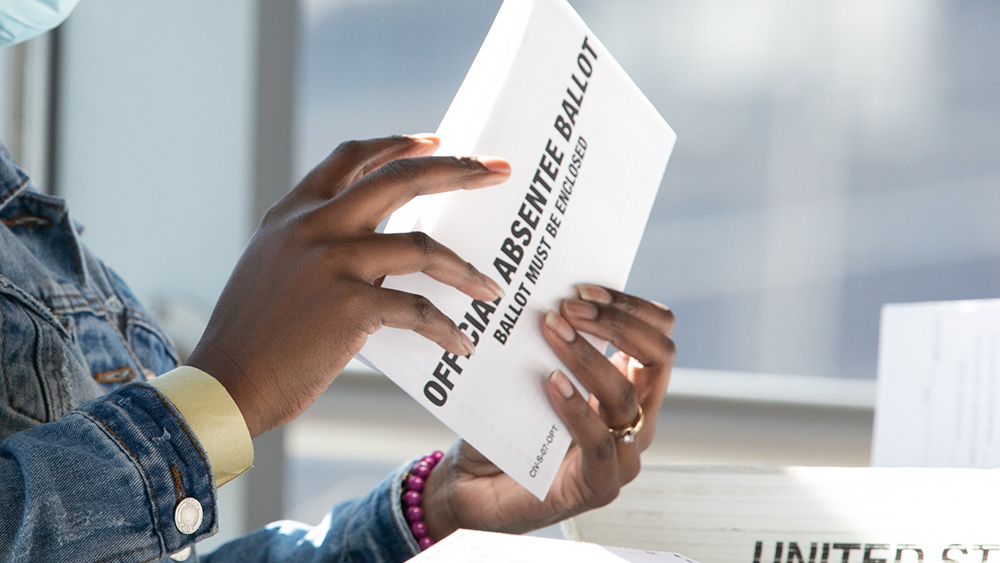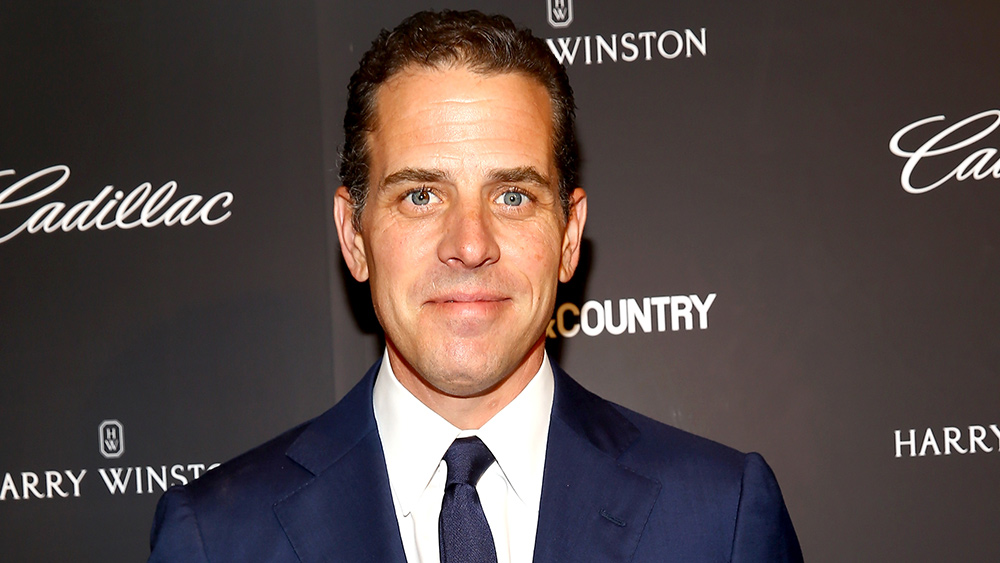Here are the 5 Supreme Court cases poised to reshape America’s future
06/13/2024 / By News Editors

A number of high-profile cases are looming as the Supreme Court prepares to wrap up its decision-making season by the end of June, with the potential to drastically change the political and social landscape of the country during an important election year.
(Article republished from GreatGameIndia.com)
According to The Hill, the high court is anticipated to rule on cases about social media, the 2nd Amendment, abortion, and, of course, Trump in less than three weeks.
Trump’s Legal Battles Take Center Stage
The appeal of former President Donald Trump concerning criminal immunity for official conduct carried out by former presidents is at the forefront. The verdict may dismiss the allegations against him that are still pending in federal election interference cases in Georgia and Florida, or it may even put an end to the proceedings. The justices were willing to award former presidents protection during the oral arguments, which might cause these high-profile cases to be postponed even longer.
AT ORAL ARGUMENTS, THE JUSTICES APPEARED INCLINED TO CARVE OUT SOME IMMUNITY FOR FORMER PRESIDENTS, LEAVING FOR A LOWER COURT WHETHER THE SPECIFIC ALLEGATIONS AGAINST TRUMP FALL WITHIN THAT SHIELD.
THAT NARROW RESOLUTION COULD PROVIDE TRUMP WITH MORE PATHWAYS TO DELAY HIS CASES, AS HE HOPES TO RETAKE THE WHITE HOUSE FOLLOWING NOVEMBER’S ELECTION AND GRIND HIS REMAINING INDICTMENTS TO A HALT.
In the meantime, Trump may benefit from the appeal of one of the Jan. 6 rioters, as obstruction of an official proceeding is one of the four accusations the former president is facing. The Supreme Court expressed doubt about the DOJ’s use of the charge when the rioter contested the application of this clause.
Social Media Rights Under Scrutiny
The Court will also rule on social media companies’ rights, which will have a big impact on online free expression. Among the instances from Texas and Florida are those in which the First Amendment rights of social media platforms to editorial discretion have been challenged by laws passed to prohibit the platforms from barring users based solely on their political beliefs. During the February arguments, the judges’ differing opinions were evident, highlighting how difficult it is to strike a balance between restrictions on speech and regulations.
THE RIGHTS AFFORDED TO SOCIAL MEDIA PLATFORMS ARE ON THE LINE IN TWO CASES STEMMING FROM CONTROVERSIAL LAWS REGULATING SOCIAL MEDIA BANS IN TEXAS AND FLORIDA.
THE LAWS AIM TO PREVENT SOCIAL MEDIA COMPANIES FROM BANNING USERS BASED ON THEIR POLITICAL VIEWS — EVEN IF USERS VIOLATE PLATFORM POLICIES.
TECH INDUSTRY GROUPS CHALLENGED THE LEGISLATION AS A VIOLATION OF PRIVATE COMPANIES’ FIRST AMENDMENT RIGHTS, ARGUING THAT THE LAWS ALLOWED THE GOVERNMENT TO WALK ALL OVER PLATFORMS’ EDITORIAL DISCRETION.
THE JUSTICES APPEARED CONFLICTED OVER THE LAWS DURING ORAL ARGUMENTS IN FEBRUARY.
A THIRD CASE AGAINST THE BIDEN ADMINISTRATION THREATENS TO UPEND HOW THE FEDERAL GOVERNMENT QUELLS MISINFORMATION ONLINE IN THE WAKE OF THE COVID-19 PANDEMIC AND 2020 PRESIDENTIAL ELECTION.
The Fate of a Widely Used Abortion Pill
The court also considered modifications to the FDA that facilitate the medication’s availability about the abortion drug mifepristone. This decision, which comes after the conservative majority’s earlier decision to overturn Roe v. Wade, may have further implications for access to abortion in the US depending on whether the Court decides to limit the use of the pill, which is used in more than half of all abortions performed in the country.
A GROUP OF ANTI-ABORTION DOCTORS AND MEDICAL ASSOCIATIONS CHALLENGED CHANGES MADE BY THE FDA OVER THE PAST DECADE EASING ACCESS TO THE PILL, INCLUDING INCREASING THE GESTATIONAL AGE AT WHICH MIFEPRISTONE CAN BE USED TO UP TO 10 WEEKS OF PREGNANCY AND ALLOWING THE MEDICATION TO BE MAILED.
THE HIGH-STAKES CASE COULD IMPACT ABORTION ACCESS IN BOTH RED AND BLUE STATES, WITH MIFEPRISTONE BEING USED IN MORE THAN HALF OF ABORTIONS NATIONWIDE.
The majority of justices were doubtful that the challengers had suffered enough damage to obtain legal standing to present their case during the court’s oral arguments in March.
Gun Rights Reexamined
Two significant gun rights cases are being heard by the Court. The first concerns the validity of federal gun possession laws for those subject to restraining orders against domestic abuse. Preliminary hearings indicate that the Court might maintain these limitations. The judges were split during the arguments in the second case, which looked at the validity of bump stock laws from the Trump administration.
Potential Overhaul of Federal Agency Power
Last but not least, the judges are debating whether to overturn the crucial principle known as the Chevron deference, which has given federal agencies extensive regulatory power for many years. If this precedent is decided to be overturned, the executive branch’s ability to implement regulations in several areas, such as financial and environmental protection, may be severely curtailed.
Each of these rulings marks a potentially revolutionary moment in American law and has significant ramifications not just for the people and policies immediately concerned but also for the larger arc of American political and social life.
Recently, GreatGameIndia reported that the US Supreme Court will decide Facebook’s fate in a massive data-harvesting scandal on June 10, following a class-action lawsuit alleging that Meta gave up to 87 million customers’ personal information to other parties, including Cambridge Analytica.
Read more at: GreatGameIndia.com
Submit a correction >>
Tagged Under:
abortion, big government, Big Tech, Censorship, Chevron deference, conspiracy, criminal immunity, current events, Donald Trump, FDA, First Amendment, free speech, freedom, gun rights, infanticide, Liberty, politics, Second Amendment, Social media, speech police, Supreme Court, tech giants, thought police, Xpost
This article may contain statements that reflect the opinion of the author
RECENT NEWS & ARTICLES
COPYRIGHT © 2017 CONSPIRACY NEWS




















